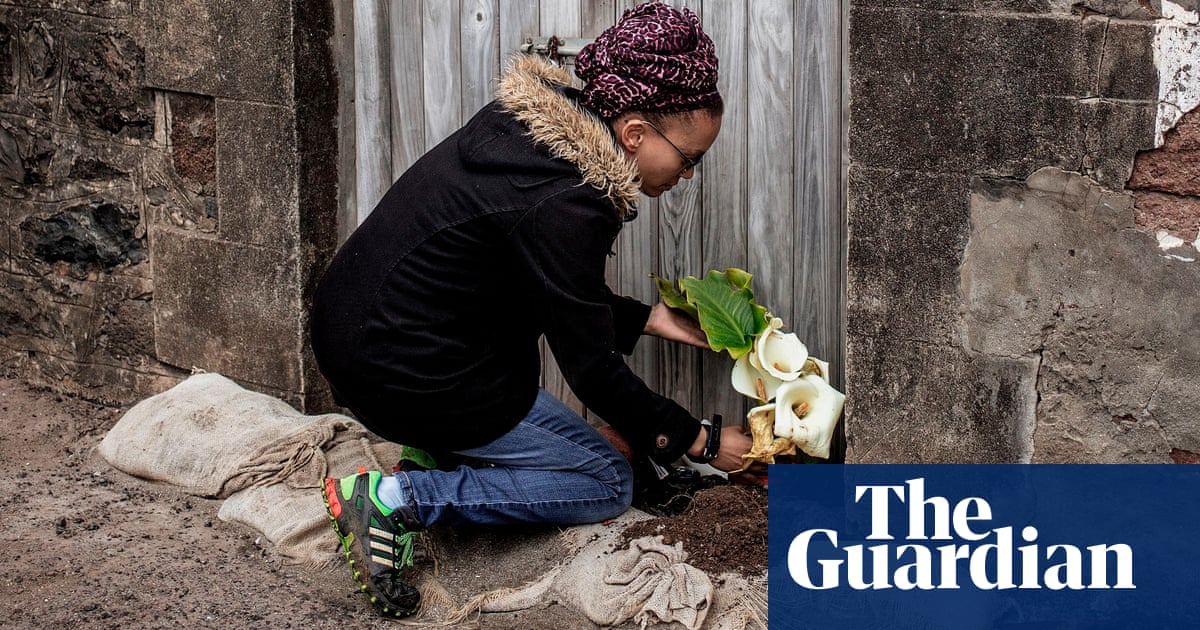
He saw it as a relaxed chat for a local podcast about social issues in the place he has worked and lived in for more than three decades and so, by his own admission, was a little unguarded.
But Sir Tim Smit, the co-founder of Cornwall’s Eden Project, has become embroiled in a furore in his adopted homeland after suggesting that the Cornish could be “a bit more fucking articulate” and were too fond of looking backwards to “good old days [that] never were the good old days”.
Smit’s words were pored over by politicians and academics on Thursday – as well as by residents and business people in St Austell, the town closest to Eden, with some fiercer critics claiming his words were racist, a charge he strongly refutes.
“He’s put his foot in it, hasn’t he?” said Simon Carter, an art dealer in St Austell. “He’s a good businessman but I think he has some odd ideas. I don’t think it’s fair to say Cornish people look backwards. I actually think Cornwall’s very forward-thinking.”
Mark Lawther, who runs a travel company in the town, agreed. “Cornwall is a unique place with unique people and a unique culture, which is very important for people, but it’s not remotely backward-looking.”
Claire Harris, who runs an art shop, saw a “grain of truth” in some of what Smit said. “People do look at the past through rose-tinted glasses at times,” she said. “And people can give off negative vibes, which makes getting things done much harder.”
Most Cornish people, she added, were “too busy making a living” to be articulate about Cornwall.
Simon Knowle, a complementary therapy practitioner, said he had time for Smit and there was room in Cornwall for all sorts of views. “Tim’s a remarkable individual. And remarkable individuals can be contentious.”
In the podcast hosted by the Cornish performer and artist Seamas Carey, Smit bemoaned the fact that people who spoke about Cornwall were sometimes criticised as “arrogant” if they were not Cornish themselves.
Smit, who was born in the Netherlands and moved to Cornwall in 1987, said: “You feel like saying, well if you were a bit more fucking articulate you could speak up yourself.”
He went on: “You’ve all got mums who made the best pasties in the world and it’s fantastic and it’s fabulous and you talk about the good old days and the good old days never were the good old days. They’ve been bad for about 70 years and they’ve been bad because of tossers like you and that’s what I would actually say to quite a lot of Cornish people.
“I really would because you cannot define your life in terms of what you don’t like. You’ve got to actually define your life sometimes in terms of the sunny uplands you would like to aspire to.”
On Thursday Smit told the Guardian that he took part in the podcast for a family friend and was “off-guard”, chatting as if he was in a pub. He admitted he “went off on one” but said: “The idea that I’m anti-Cornish is as far off the mark as it could possibly be.” Smit said he regretted using the word “tossers”. But he added: “I’m not racist. It was a type of Cornish approach I was talking about.”
Andrew George, a Cornish Liberal Democrat councillor, called it an “astonishing rant”. He said: “The Cornish have always been the last refuge for this kind of ‘acceptable’ racism. He knows he can get away with it because there are enough who share his lazy caricature of Cornish people and the prejudice and antipathy which accompanies it.”
Joanie Willett, the co-director of the Institute of Cornish Studies, said the cheerful, holiday image people had of Cornwall made it harder for residents’ real experiences to be seen and heard. “We are not inarticulate, it’s that our story is not being heard,” she said. “We do try to define ourselves in terms of our sunny uplands. But that voice gets drowned out.”
There were some backers for Smit. Kim Conchie, the chief executive of Cornwall Chamber of Commerce, said he must have been feeling “grouchy” when he did the interview but added that people like Smit and Rick Stein had helped Cornwall get its “mojo” back.
Bert Biscoe, a Cornish politician, historian and bard of the Cornish Gorseth, which exists to maintain the Celtic spirit of Cornwall, said Smit had over-stated Cornish people’s inclination to be negative. He sais he was glad the comments had led to debate, before adding: “But he could have been a little more polite.”












